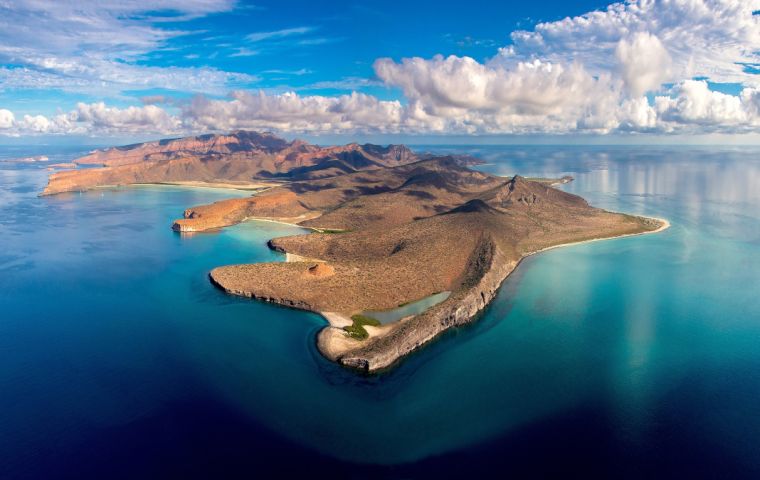MercoPress. South Atlantic News Agency
Brazil: Tourists banned from Espirito Santo islands due to bird flu
 Brazil remains free from avian influenza before the World Organization for Animal Health because there is no record in commercial production
Brazil remains free from avian influenza before the World Organization for Animal Health because there is no record in commercial production Authorities in the Brazilian southeastern State of Espirito Santo Thursday decided to ban all tourists from the islands of Vitória after confirming 20 outbreaks of the highly pathogenic avian influenza, Agencia Brasil reported.
The government of Espírito Santo state has banned, indefinitely, access to the Três Ilhas Archipelago and the other islands of the Setiba Environmental Protection Area (APA), located in the municipalities of Guarapari and Vila Velha, metropolitan region of Vitória. The measure was adopted due to the cases of avian flu reported in the state and covers a total of eight islands.
The Arquipélago das Três Ilhas is formed by five islands: Quitongo, Cambaião, Guanchumbas, Leste-Oeste, and Guararema. In the other areas of the APA are the islands of Francisco Vaz, Toaninha, and Alacaeira. The joint order from the State Secretary of Environment and Water Resources and the State Institute of Environment and Water Resources was published this Thursday (8) in an extra edition of the state's Official Gazette.
Espírito Santo is the state with the highest number of avian influenza cases in the country, with 20 outbreaks of highly pathogenic avian influenza (H5N1) confirmed. Until then, Brazil had never recorded the occurrence of the disease in its territory.
In all, 30 outbreaks in wild birds have been confirmed in the states of Espírito Santo, Rio de Janeiro, Rio Grande do Sul, São Paulo, and Bahia. The majority are birds of the species Thalasseus acuflavidus (popular name of the trinta-réis-de-bando) and Thalasseus maximus (trinta-réis-real).
The Ministry of Agriculture and Livestock has made available a panel for consultation of confirmed cases, discarded cases, and cases under investigation. The platform can be consulted by anyone and will be updated twice a day, at 1 pm and 7 pm.
This week, the federal government also opened an extraordinary credit line in favor of the Map for actions against avian flu. The ministry informed that, with the state of animal health emergency in force in the country, the control and containment actions will be intensified to prevent the disease from reaching subsistence and commercial poultry production, in addition to preserving the fauna and human health.
The Map's orientation is that the population should not collect birds they find, sick or dead, and call the nearest veterinary service. Also according to the government, there are no changes in the Brazilian status of being free from highly pathogenic avian influenza before the World Organization for Animal Health, because there is no record in commercial production.
Avian influenza is a highly contagious viral disease that affects mainly domestic and wild birds. It is mainly characterized by high mortality of birds that can be accompanied by clinical signs such as staggering gait, torticollis, respiratory distress, and diarrhea.
The H5N1 virus does not easily infect humans, but the increase in cases recently has put health authorities around the world on alert. Human infections can occur through contact with infected birds, live or dead, or environments contaminated with respiratory secretions, blood, feces, and other fluids released in the slaughter of birds.
The risk of transmission to people through properly prepared and well-cooked food is also very low. In addition, the virus does not spread easily from person to person.
Despite being infrequent, in humans, avian flu can be serious, with a high mortality rate. The Butantan Institute, in São Paulo, has started to develop a vaccine against the disease out of concerns that it could become a new pandemic.
(Source: Agencia Brasil)




Top Comments
Disclaimer & comment rulesCommenting for this story is now closed.
If you have a Facebook account, become a fan and comment on our Facebook Page!